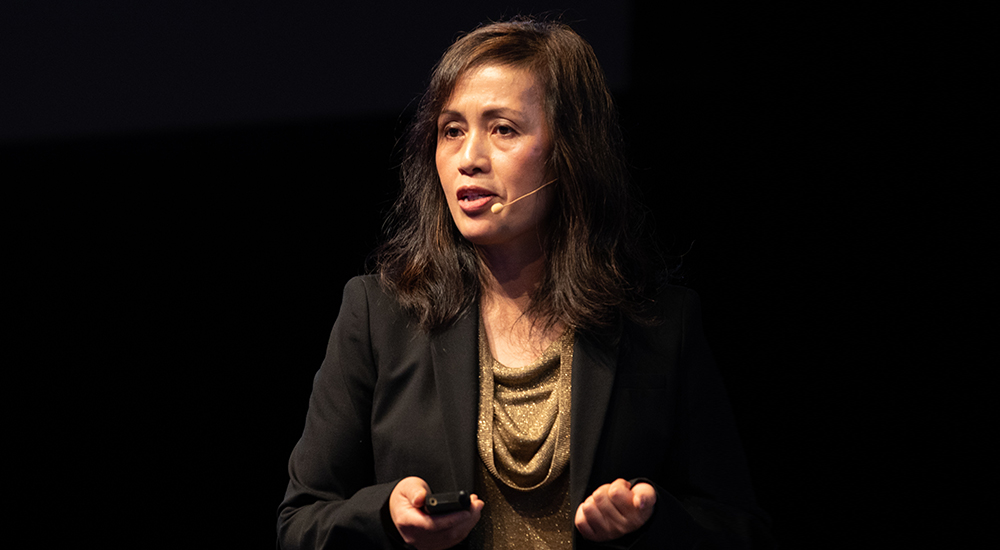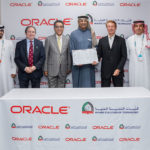Oracle, Future Workplace study finds 72% UAE workers open to robots as co-workers

Contrary to common fears around how artificial intelligence, AI, will impact jobs; employees, managers and HR leaders in the UAE are welcoming AI in the workplace with love and optimism, according to the second annual AI at Work study conducted by Oracle and Future Workplace, a research firm preparing leaders for disruptions in recruiting, development and employee engagement.
The study of 8,370 employees, managers and HR leaders across 10 countries, including the UAE, found that AI has changed the relationship between people and technology at work and is reshaping the role HR teams and managers need to play in attracting, retaining and developing talent.
The increasing adoption of AI at work is having a significant impact on the way employees collaborate at the workplace, and they are ready to welcome AI-colleagues with open arms.
- 72% of UAE respondents are either excited or optimistic about having robot co-workers.
- Baby Boomers, 50%, and Millennials, 47%, expressed more willingness to have robot co-workers as compared to Gen Z digital natives, 41%.
- UAE workers would like to delegate mundane tasks like creating expense reports, calculating employee benefits, writing pay checks and managing vacation requests to AI-enabled robots.
- 12% of UAE respondents would also like AI to deliver career coaching, while 7% are comfortable allowing AI to conduct job interviews.
UAE workers are looking at the increasing adoption of AI in the workplace as an opportunity to acquire new skills and deliver more strategic work for their organisation.
- When asked what new opportunities they think will be created through using AI, 43% of UAE respondents chose learning new skills. 38% followed that up with opportunities to expand their role to be more strategic.
- Having more free time to pursue other interests was chosen by 39% of UAE workers.
- 27% of respondents also felt that AI can help them drive better organisational change and have a better and healthier work relationship.
- 26% of workers believe that AI will help them achieve faster promotions, while 18% hoped to secure a higher salary.
The impact of AI at work is only just beginning, and workers are looking at the technology to create a positive impact on their professional and personal relationships.
- 52% of UAE respondents said that AI has had a positive impact on their relationship with other employees, while 36% said engagement with their manager improved due to the introduction of AI at workplace.
- Respondents also said that AI has positively impacted their relationship with their spouse/partner,6%, and their children, 7%.
Initial findings from the survey include:
- AI is becoming more prominent with 50% of workers currently using some form of AI at work compared to only 32% last year.
- Workers in the UAE, 62%, China, 77%, and India, 78%, have adopted AI over 2X more than those in France, 32%, and Japan, 29%.
- The majority, 65%, of workers are optimistic, excited and grateful about having robot co-workers and nearly a quarter report having a loving and gratifying relationship with AI at work.
- Workers in India, 60%, and China, 56%, are the most excited about AI, followed by the UAE, 44%, Singapore, 41%, Brazil,32%, Australia/ New Zealand, 26%, Japan, 25%, US, 22%, UK, 20%, and France, 8%.
- Men have a more positive view of AI at work than women in the UAE with 61% of men optimistic vs 55% of women.
The increasing adoption of AI at work is having a significant impact on the way employees interact with their managers. As a result, the traditional role of HR teams and the manager is shifting.
- 64% of people would trust a robot more than their manager and half have turned to a robot instead of their manager for advice.
- Workers in India, 89%, and China, 88%, are more trusting of robots over their managers, followed by Singapore, 83%, Brazil, 78%, Japan, 76%, UAE, 74%, Australia/ New Zealand, 58%, US, 57%, UK, 54%, and France, 56%.
- In the UAE, more men,76%, than women, 64%, have turned to AI over their managers.
- 82% of people think robots can do things better than their managers.
- When asked what robots can do better than their managers, UAE survey respondents said robots are better at maintaining work schedules, 42%,, problem solving, 34%, and providing unbiased information, 32%.
- When asked what managers can do better than robots, UAE workers said the top three tasks were understanding their feelings, 46%, coaching them, 32%, and evaluate team performance, 25%.
The impact of AI at work is only just beginning and in order to take advantage of the latest advancements in AI, organisations need to focus on simplifying and securing AI at work or risk being left behind.
- 88% of UAE workers surveyed and 84% of HR leaders, find it challenging to keep up with the pace of technological changes in the workplace.
- UAE workers want a simplified experience with AI at work, asking for a better user interface, 43%, best practice training, 41%, and an experience that is personalised to their behaviour, 35%,.
- Privacy, 41%, and security, 40%, are the main concerns preventing UAE workers from using AI at work.
- Digital natives Gen Z, 41%, and Millennials, 45%, are more concerned about privacy and security at work than Gen X, 33%.
“The latest advancements in machine learning and artificial intelligence are rapidly reaching mainstream, resulting in a massive shift in the way people across the world interact with technology and their teams. As this study shows, the relationship between humans and machines is being redefined at work, and there is no one-size-fits-all approach to successfully managing this change. Instead, organisations need to partner with their HR organisation to personalise the approach to implementing AI at work in order to meet the changing expectations of their teams around the world,” said Emily He, SVP, Human Capital Management Cloud Business Group, Oracle.
“Our 2019 results reveal that forward looking companies are already capitalising on the power of AI,” said Jeanne Meister Founding Partner, Future Workplace. “As workers and managers leverage the power of artificial intelligence in the workplace, they are moving from fear to enthusiasm as they see the possibility of being freed of many of their routine tasks and having more time to solve critical business problems for the enterprise.”





